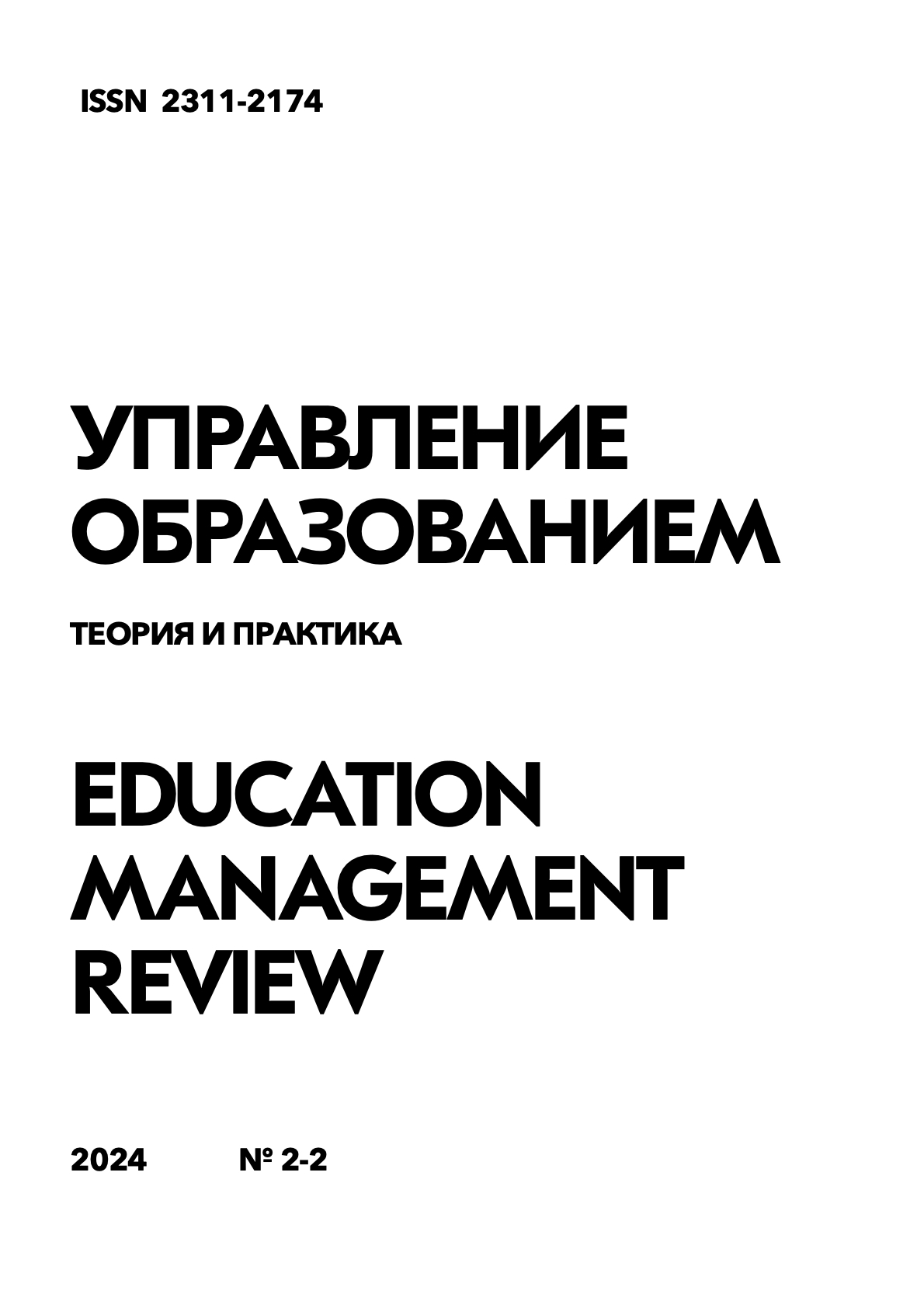Innovative educational practices in the digital educational environment of a university in the Russian Federation
DOI:
https://doi.org/10.25726/o5413-6400-3895-gKeywords:
innovative parenting practices, digital educational environment, higher education, gamification, personalization of learning, virtual reality, social responsibilityAbstract
The article discusses innovative educational practices applied in the digital educational environment of higher educational institutions of the Russian Federation. The relevance of the research is due to the rapid development of information and communication technologies and their introduction into the educational process, which requires a revision of traditional approaches to the education of students. The purpose of the work is to identify and analyze effective innovative educational practices that contribute to the formation of students' necessary competencies and personal qualities in the context of digitalization of education. Research materials and methods include the study of scientific literature on the problem, the analysis of normative legal documents regulating educational activities in Russian universities, as well as empirical methods such as questionnaires and interviews of teachers and students of leading universities in the country. The study analyzed data obtained from a survey of 250 teachers and 1,500 students from 15 universities in various regions of Russia. The results of the study indicate that the most effective innovative educational practices in a digital educational environment are: the use of gamification and gaming technologies (used in 78% of the universities studied), the organization of online events and social projects (65%), the introduction of personalized educational trajectories taking into account the individual characteristics and interests of students (52%), as well as the use of virtual and augmented reality technologies in the educational process (35%). It is noted that these practices contribute to increasing students' motivation and engagement, developing their critical thinking, creativity, teamwork skills and social responsibility. The article provides specific examples of the successful implementation of these practices in leading universities of the Russian Federation, as well as discusses the prospects for their further development and dissemination in the higher education system.
References
Aндриенко О.А. Современные образовательные технологии и их применение: кейс-технологии // Colloquium-journal. Pedagogical sciences. 2019. № 2(26). С. 9-12.
Ваганова О.И., Корнилова Е.С., Комлева А.П. Формирование воспитательной среды вуза средствами цифровых технологий // Проблемы современного педагогического образования. 2023. № 81- 3. С. 49-51.
Вербицкий A.A. Теория и технологии контекстного образования: уч. пос. М.: МПГУ, 2017. 248 с.
Гарибянц Г.С., Титова Н.А. Инновации в совершенствовании системы мотивации персонала – определяющий элемент его инновационного поведения в организации // Экономика и управление: проблемы, решения. 2018. Т. 4. № 6. С. 53-58.
Демина О.А. О трансформации методического мышления преподавателей вузов // Высшее образование в России. 2020. № 7. С. 156-167.
Добролюбов Е.А. Система материального и нематериального стимулирования (мотивации) персонала // Банковские технологии. 2016. № 3. С. 41-44.
Ковалев В.В., Касьянов В.В., Манучарян А.К. Онлайн-образование в высшей школе России: фактор разрушения или источник развития? // Гуманитарий Юга России. 2020. Т. 9. № 3. С. 72- 91.
Мартынов Р.Р. Разработка мероприятий по совершенствованию системы мотивации и стимулирования в организации // Студенческий форум. 2018. № 15(36). С. 32-36.
Мылова И. Б. Применение цифровых технологий для решения воспитательных задач в педагогической работе с младшими школьниками // Герценовские чтения. Начальное образование. 2023. Т. 14. № 2. С. 10-16.
Орешкина А.К. Теоретико-методологические основы развития саморегуляции как психического ресурса творческой личности в условиях цифрового обучения // Профессиональное образование и общество. 2021. № 1(37). С. 89-94.
Савченков А.В. Стратегия подготовки будущих педагогов профессионального обучения к осуществлению воспитательной деятельности: дис. ... д-р пед. наук. Челябинск, 2021. 586 с.
Сокольницкая Т.Н. Основные характеристики методического мышления современного учителя русского языка // Педагогика. 2021. № 2. С. 116-124.
Табаченко Т.С. Формирование методического мышления будущих учителей русского языка // Образование и наука. 2014. № 3(112). С. 138-157.
Чернявский А.Г. К вопросу о поиске оптимальных путей реализации культурно-воспитательной функции государства в условиях развития современных цифровых технологий // Вестник ВНИИДАД. 2019. № 3. С. 50-61.
Яковлева О.В., Носкова Т.Н. Исследование особенностей применения учителями цифровых технологий в воспитательной деятельности // Известия Волгоградского государственного педагогического университета. 2021. № 9(162). С. 25-31.
Schart M. Dialogisches Lernen in einer digitalen lernumgebung // Zeitschrift für Interaktionsforschung in DaFZ. 2021. Vol. 1. № 1. рр. 1-34.




